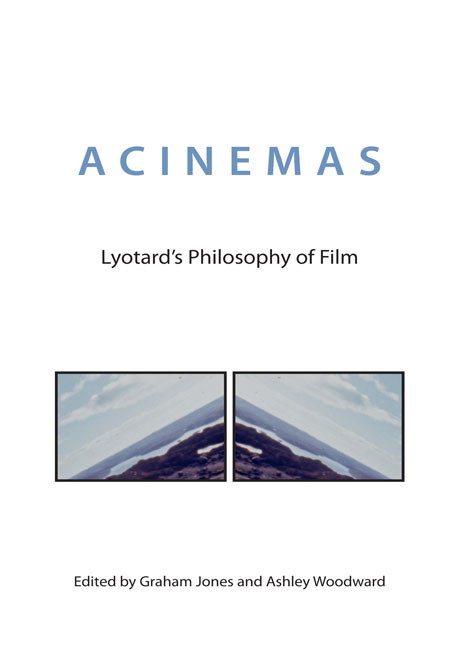Book contents
- Frontmatter
- Contents
- Acknowledgements
- Abbreviations
- Translators’ Note
- I Openings
- II Lyotard's Essays on Film
- III Approaches and Interpretations
- 8 Imaginary Constructs? A Libidinal Economy of the Cinematographic Medium
- 9 Lyotard and the Art of Seduction
- 10 Authorisation: Lyotard's Sovereign Image
- IV Applications and Extensions
- Appendices
- Notes on Contributors
- Index
8 - Imaginary Constructs? A Libidinal Economy of the Cinematographic Medium
from III - Approaches and Interpretations
Published online by Cambridge University Press: 23 June 2018
- Frontmatter
- Contents
- Acknowledgements
- Abbreviations
- Translators’ Note
- I Openings
- II Lyotard's Essays on Film
- III Approaches and Interpretations
- 8 Imaginary Constructs? A Libidinal Economy of the Cinematographic Medium
- 9 Lyotard and the Art of Seduction
- 10 Authorisation: Lyotard's Sovereign Image
- IV Applications and Extensions
- Appendices
- Notes on Contributors
- Index
Summary
Acinema’ envisions cinema as a libidinal set-up, dispositif pulsionnel, a notion elaborated in clear opposition to the Lacanian model of desire which relies on the negativity of a lack that is constitutive of the subject and limits desire to the movement of the signifying chain. Lyotard attempts to overcome this negativity, which opens the space of representation, by substituting for it the positivity of a desire that no longer relies on a foundational lack, but is instead thought dynamically in terms of quantities of energy. He finds such a positivity in the Freudian model of the death drive, a notion of desire as force that is repressed in Lacan by the pre-eminence of desire as wish. However, Lyotard elaborates his reflection on cinema in a narrow dialogue with Lacan. This dialogue, far from simply consisting in a rejection, entails crucial implications for a thinking of an efficacy of cinema envisioned as a libidinal set-up, and, more generally, for a thinking of the relationship of medial configurations with reality. Indeed, Lyotard goes as far as stating that ‘[t]he film acts like the orthopaedic mirror analysed by Lacan in 1949 as constitutive of the imaginary subject or objet a; that we are dealing with the social body in no ways alters its function’ (Ac 39).
This claim creates an association between three poles. It posits an analogy between the workings of the psyche and the workings of the cinematographic medium, an analogy that in turn provides the framework from which it becomes possible to posit that the film has a concrete, transformative effect on society. We are faced with this incredible reversal: cinema, a technology designed to record reality, has, in a certain sense that we will try to understand, a formative power over reality itself. The purpose of this chapter is to attempt to understand the meaning, the importance and the limitations of this statement within the context of the libidinal economic aesthetics that Lyotard elaborates in the 1970s.
- Type
- Chapter
- Information
- AcinemasLyotard's Philosophy of Film, pp. 73 - 86Publisher: Edinburgh University PressPrint publication year: 2017



